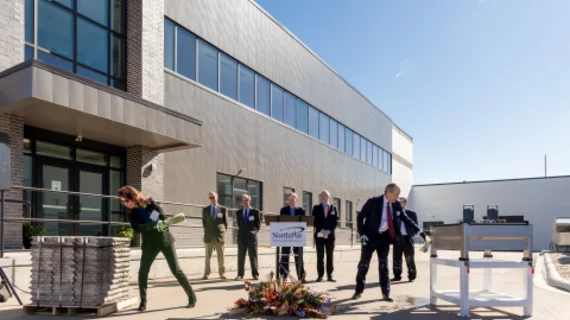NorthStar breaks ground on isotope facility, moves toward doubling domestic Mo-99 supply
Radiopharmaceutical specialist NorthStar Medical Radioisotopes has broken ground on a new facility for producing advanced therapeutic materials, the company said Thursday.
The Beloit, Wisconsin, firm made the announcement during an event held last month at its headquarters. NorthStar’s new facility is dedicated solely to producing therapeutic radioisotopes used to treat cancer, respiratory and other diseases.
“By applying our proven molybdenum-99 production development expertise and environmentally sound electron accelerator technology, we are well-positioned to be the first commercial-scale producer of actinium-225 (Ac-225) and copper-67 (Cu-67),” President and CEO of the nuclear medicine company Stephen Merrick said in an announcement.
During the event, NorthStar also revealed the completion of its accelerator production and isotope processing facilities. The latter is undergoing testing and is expected to start producing Mo-99 by 2023, pending FDA approval and licensing.
Merrick said the firm is “well on its way” to having dual production and processing pathways for Mo-99, potentially doubling the current domestic supply. As it stands, NorthStar remains the only commercial U.S. producer of Mo-99 and the sole company in the world to do so without using uranium.
Back in August, NorthStar won a $37 million agreement from the U.S. Department of Energy to enhance production of Mo-99. The latter is used to generate technetium-99m, the most widely used medical imaging radioisotope that helps clinicians treat 40,000 patients every day.
“This is a very exciting time for NorthStar and everyone in the nuclear medicine community,” Merrick said. “All of us share a vision to accelerate the future of patient health by providing innovative solutions to ensure reliable access to radioisotopes that can make a positive difference in healthcare for people around the world.”

